When choosing filters for your vehicle, there can be a lot of conflicting information for you to sort through. You might have heard that certain types of air filters, like K&N, would harm your engine. We researched these filters and their impact on vehicles so you'll know for sure whether they live up to the hype or are a detriment to your vehicle.
If you properly use a K&N air filter, it will not damage your engine. However, those who accidentally overoil this filter may have some damage done to the intake.
Now that we know that a K&N air filter will only harm your engine if they are improperly used, we'll take a look at the advantages and disadvantages of this type of filter. You might also be curious if a K&N air filter will increase a vehicle's horsepower or how often this filter needs to be cleaned. For the answers to these questions and more, read ahead in this post to see what our research has uncovered.
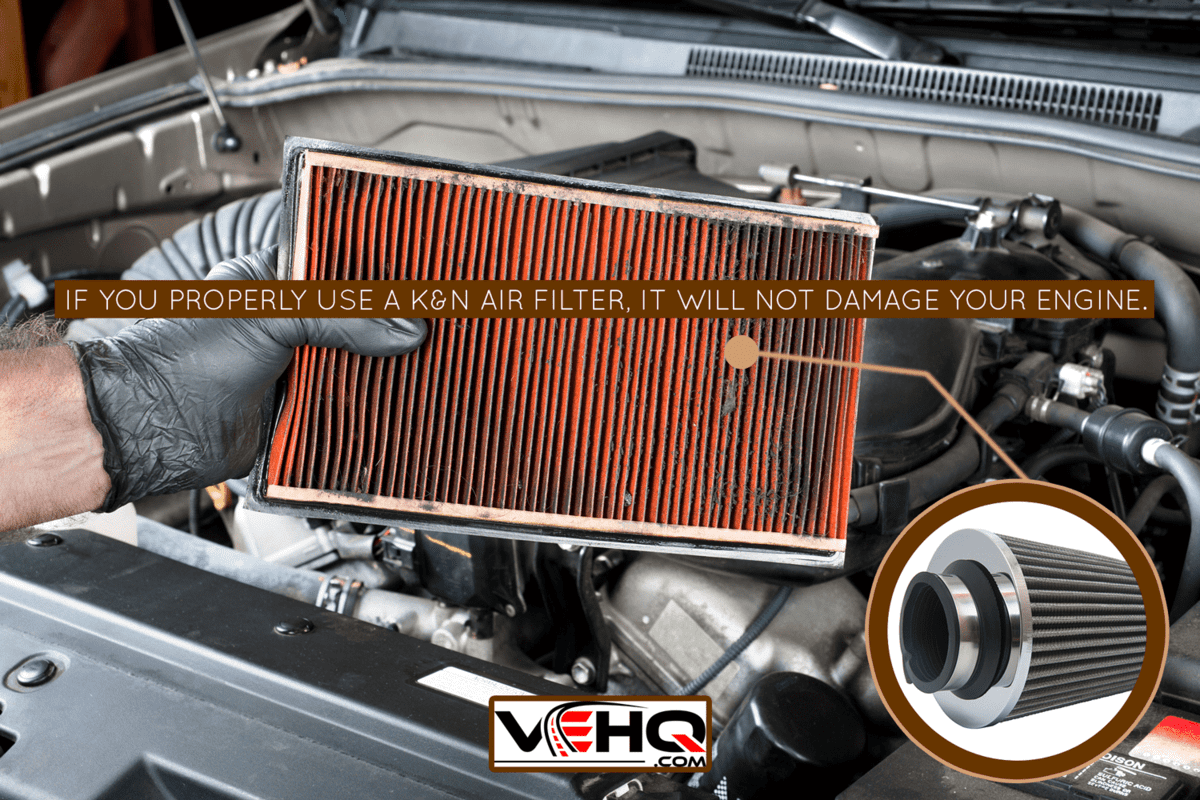
The Advantages And Disadvantages Of K&N Air Filters
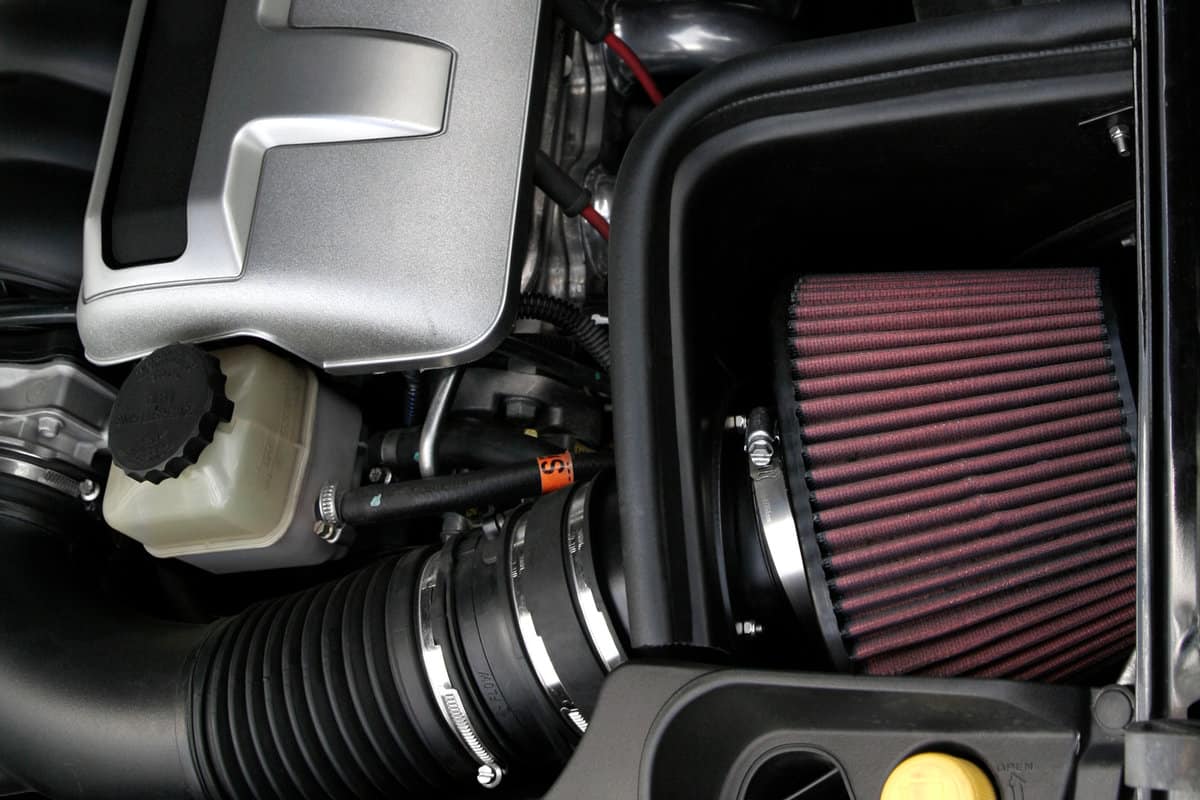
No matter what air filter you choose for your vehicle, there will be stated advantages and disadvantages for each one. The one you select for your vehicle will depend on how you weigh the available information, placing it against what you know about your vehicle.
Below, we'll take a look at why you might consider a K&N air filter. We'll also look carefully at why you might want to go in a different direction.
The Advantages Of A K&N Air Filter
Though you might pay more for a K&N air filter, they are backed by a million-mile warranty. They are reusable and will only require you to clean and oil them on occasion.
This air filter is up to 99 percent effective in preventing contaminants from entering the intake. They work well in wet climates, too.
K&N air filters are also better for the environment. Since they are reusable, you will only be using one air filter throughout the life of your vehicle as opposed to the dozen or more you'd go through after 200,000 miles by using other brands of air filters.
The Disadvantages Of A K&N Air Filter
As we mentioned before, these filters are reusable. While this can be seen primarily as an advantage, it also has some caveats that consumers should be aware of. Should you not routinely have your K&N filter cleaned, it will allow dust particles to invade your engine. This can cause some expensive damage.
Dusty air filters are even more of an issue in dry climates. If you live or drive a lot on dirt or gravel roads, you can expect to have to clean this filter a lot more regularly.
These filters can also be over-oiled. When this happens, the excess oil gets sucked in through the intake. This, like dirt particles, can harm your engine's components.
Are More Expensive Air Filters Worth The Money?

You will notice quite a price range when shopping for air filters for your car's engine. With an average starting price of $20, you'll find some of these products upwards of $70.
This leads some consumers to question whether or not more expensive air filters are actually worth the additional expense or if they're paying for something that they don't need.
Cheaper brands of air filters are meant to be disposable. Once they are dirtied, they will need to be replaced with a new clean one. Though they aren't very expensive, imagine multiplying the cost of one of these filters over the number of ones you'll use throughout the life of your vehicle.
After three or four of these filters, a more expensive and reusable brand will more than pay for itself. Of course, you'll have to regularly clean a reusable air filter, which some consumers might not want to deal with. For some, just getting a new one and throwing the dirty one away is a simpler way of doing things.
In the end, a more expensive air filter will save you time and money if it is used and cleaned properly. But if you aren't sure that you can install one the right way or routinely clean it, then you might opt for a cheap disposable air filter.
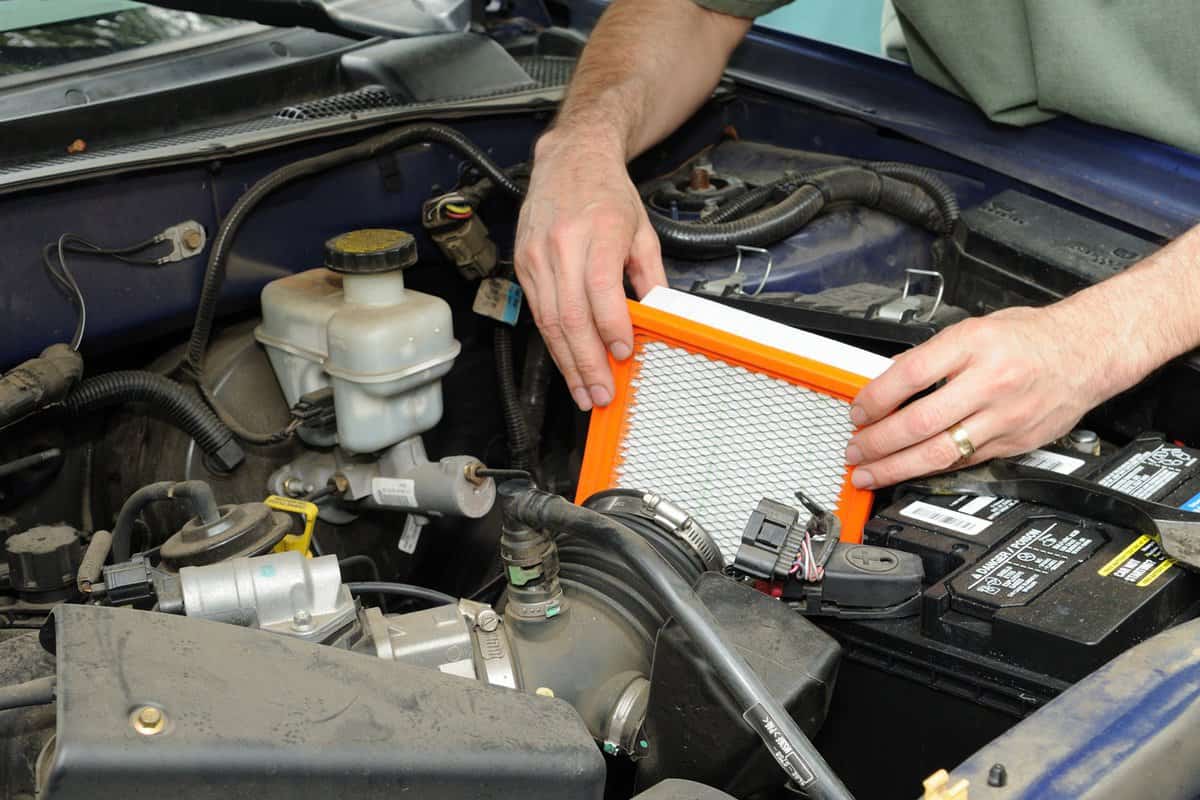
Will A K&N Air Filter Increase A Vehicle's Horsepower?
You might have heard that certain types of air filters will increase the overall power of your vehicle. In an internal combustion engine, fuel and oxygen are used to make the vehicle go.
Air is sucked in and mixed with the fuel, the combination of which results in power sent to the crankshaft. If you can increase the airflow a bit, it will burn the fuel more efficiently and give more power to your vehicle.
When combined with the K&N air intake system, a K&N air filter can increase this air intake by up to 50%. This will not only increase your vehicle's horsepower but also the torque that it generates.
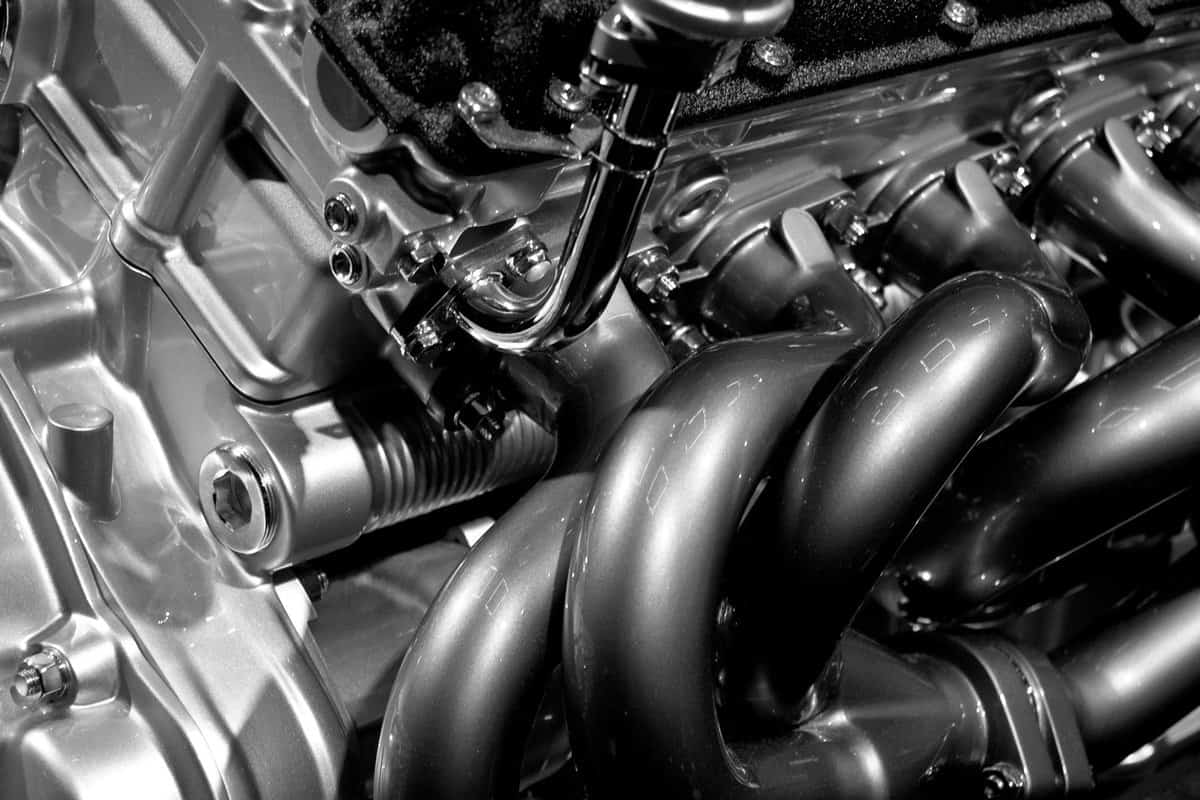
Can I Use WD-40 As An Air Filter Oil?
Reusable air filters, like K&N brand ones, will require you to lubricate one side of the filter immediately before it is installed.
With so many types of lubricants out there, you might believe that just any will do. But when it comes to certain ones, they will not only fail to do the job but will also pose a danger to your engine.
WD-40 should never be used to lubricate an air filter in your vehicle. The oil used on this type of filter is meant to catch particles of dirt that try to invade your engine. WD-40 evaporates too quickly, rendering it useless for this task.
Without a lubricant to catch dirt particles, they will be able to be sucked into the engine. This will lead to costly damage. It's recommended that you only use an approved air filter oil when lubricating your K&N air filter.
For a video tutorial on how to properly clean and oil your K&N air filter, you can watch the one below:
How Often Does A K&N Filter Need To Be Cleaned?
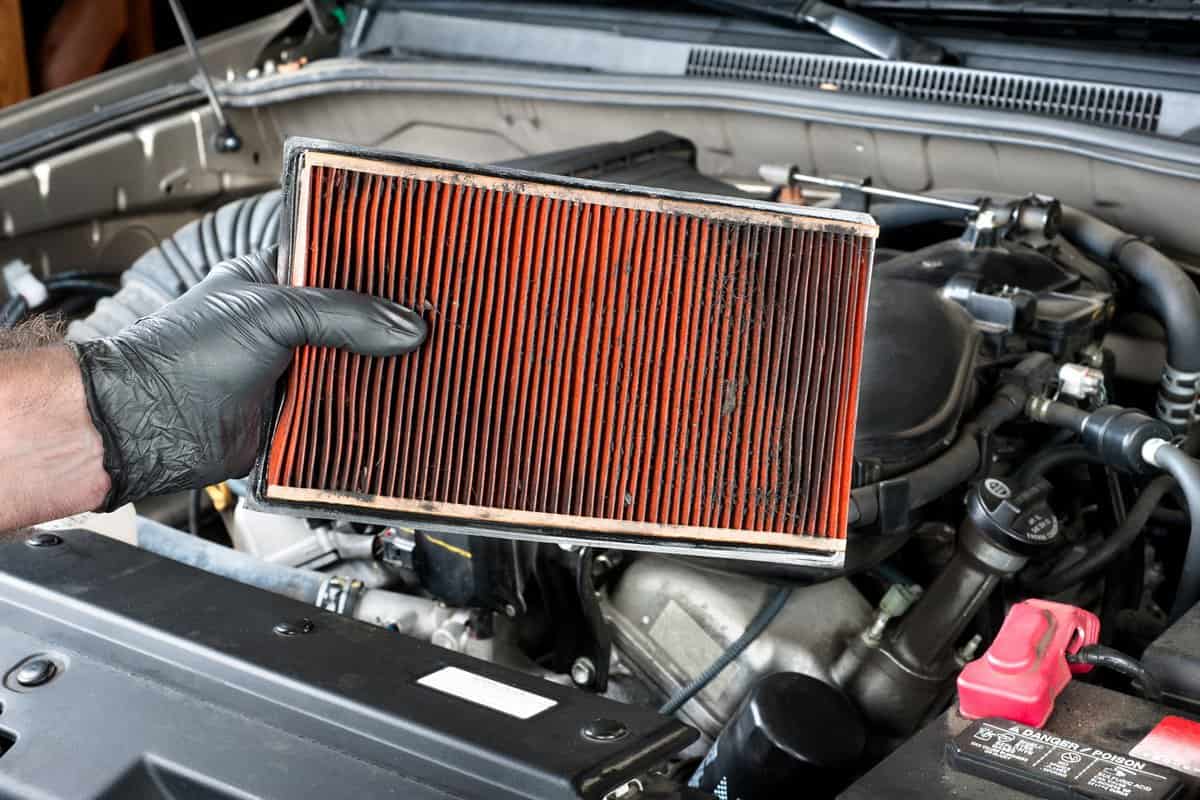
The reusable air filters from K&N will need to be thoroughly cleaned and oiled on occasion. While this isn't something that needs to be done too often, you'll find that it will become a very important part of your routine vehicle maintenance program.
Though these filters are great additions to your vehicle, they will do the engine harm if they aren't cleaned when they should be.
K&N air filters should be visually inspected every 25,000 miles. Ordinarily, they will only need to be cleaned every 50,000 miles. Depending on where you are driving, you might encounter more dust which would lead to cleaning it at earlier intervals.
Some models of K&N air filters can last up to 100,000 miles between cleanings. For best results, confirm the cleaning regimen with the instructions from the manufacturer.
Final Thoughts
K&N air filters are a great addition to most vehicles, as they are more cost effective and environmentally friendly. They will require a bit more effort on your part, and failure to clean them properly can lead to damage to your engine.
Clean and oil your K&N air filter every 50,000 miles and you'll see an increase in your vehicle's horsepower and torque. Drive safe!
We hope this post on K&N Filters answered all of your questions. For more helpful automotive information, we suggest reading the following posts:
Will Adding Oil Make Car Start? [And How To Tell If Your Oil Is Low]
Do Electric Cars Need Oil Changes or Other Routine Maintenance?
